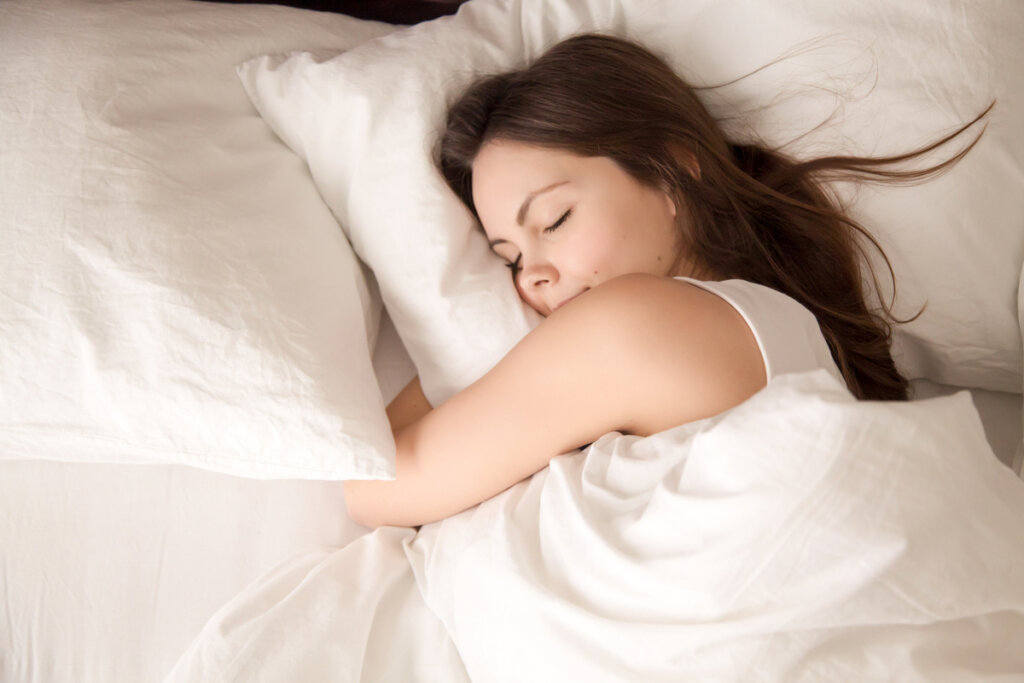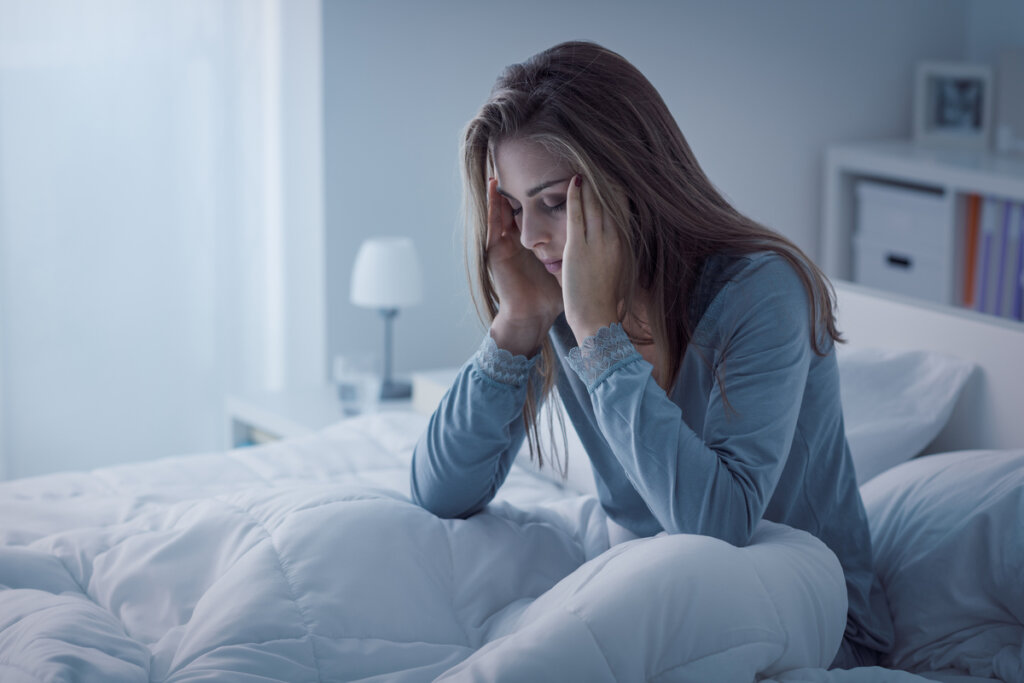The 90-Minute Rule for Better Sleep

Sleeping has become a problem for millions of people. In fact, it’s believed that today, people sleep an average of two hours less than they did in the 1950s. This is concerning. However, the 90-minute rule for sleeping better is backed by scientific evidence.
What the 90-minute rule does is help each person wake up in tune with their natural sleep cycles. So what’s the rule? We’re going to tell you.
“The active work of day is over; the boundless ocean of space, with its lustrous spheres, proclaims Night’s eternal power and presence.”
-Novalis-

Circadian rhythms
Circadian rhythms are biological cycles. They last 24 hours and correspond to the rotational movement of the Earth. They regulate, among other aspects, sleep and wake times, food, hormone production, and body temperature.
The sleep cycle is part of the circadian cycle and determines how we sleep. Each of these cycles lasts 90 minutes, although they can vary from person to person. However, it’s never less than 90 minutes or anymore than 110 minutes.
Within the sleep cycle, there are five phases. They’re as follows:
- Phase I. It corresponds to the stage in which drowsiness is felt, brain activity slows down, and a process of muscle relaxation begins. The body prepares to sleep.
- Phase II. Brain waves gradually slow down.
- Phases III and IV. Sleep gets deeper.
- Phase V or REM phase. This last phase is that of deep sleep itself. It’s the most restful period and it’s at this stage that you dream.
The 90-minute rule
Each night, you have between four and six sleep cycles. The 90-minute rule is based on this process. It follows the idea that it’s appropriate to wake up at the end of phase V or REM. It seems that if you wake up then, you’ll feel more rested.
Thus, it would be appropriate for you to wake up after one and a half hours, three hours, four and a half hours, six hours, seven and a half hours, and nine hours after you went to sleep. If you get up at that time, when a cycle is complete, the transition to wakefulness will be more efficient.
However, if you wake from a deep sleep phase, you’ll feel much more tired even if you’ve been in bed for several hours. Therefore, it’ll be far more difficult for you to feel the restorative effect of your rest.
Something similar happens when taking a nap. If you sleep for 25 minutes, the return to your routine will be easier than if the nap is for an hour. That’s because, by only sleeping for 25 minutes, you didn’t enter the deep phase of sleep. On the other hand, if you slept for an hour, you’ll feel more tired.

Sleeping with rhythm to sleep better
There are two ways to get in sync with your sleep cycles. One of them is to apply the 90-minute rule simply by setting the alarm clock at the approximate time one of the cycles ends. This is easiest for those who have regular sleep schedules and rarely disturb them.
The other possibility is to make use of technology. Currently, there are apps that can help you apply the 90-minute rule. You just have to open the app on your mobile phone, when you go to bed. Put the phone next to your pillow, never under it. Also, place the cell phone face down.
The app detects your movements from the moment you activate it. It works on the rule that the more deeply asleep you are, the fewer moves you’ll make. It keeps a record and when a certain time passes without any movement being detected in your body, the app understands that you’re in a deep phase of sleep.
The app can be programmed so that the alarm clock sounds half an hour after the last time it entered this state. You determine how many cycles you want to do before the app wakes you up. Consequently, you’ll be able to get up at the right time, feeling more rested.
Other tips to improve sleep quality
As you’ve seen, sleeping well isn’t only a matter of quantity, but also of quality. For this reason, 90-minute cycles won’t be effective if you don’t follow these additional tips:
- Go to bed only when you start to feel sleepy.
- Have a sleep routine. Try to go to sleep and get up at similar times.
- Don’t use the bed for other activities, like eating or watching TV.
- Avoid electronic devices. The light from screens interferes with melatonin production, making it more difficult to fall asleep.
- Avoid copious dinners, especially those containing sugars and fats.
- Don’t go to bed hungry, thirsty, or wanting to go to the bathroom.
- Find out your chronotype. Knowing if you’re a more active person in the mornings or in the afternoons will help you better regulate your rhythms.
- Avoid caffeine, nicotine, and other stimulant drugs.
- Know your circadian cycle. Each person is unique and you must adjust to the needs of your own body.
- Some people benefit from pre-bedtime routines, such as playing relaxing music or taking a bath.
- Get a good quality mattress and pillow.
- Regulate the amount of light and temperature in your room to make it comfortable for you to sleep. Noise must be controlled.
As you can see, deep and restful sleep is possible. It might be hard at first to discipline yourself to achieve it, but as soon as your body adapts to the new rhythm you’ll be able to make any necessary adjustments.
All cited sources were thoroughly reviewed by our team to ensure their quality, reliability, currency, and validity. The bibliography of this article was considered reliable and of academic or scientific accuracy.
- Contreras, S. A. (2013). Sueño a lo largo de la vida y sus implicancias en salud. Revista Médica Clínica Las Condes, 24(3), 341-349.
- Miró, E., Lozano, M. D. C. C., & Casal, G. B. (2005). Sueño y calidad de vida. Revista colombiana de psicología, (14), 11-27.
- NIH. (2018). ¿Qué sucede durante el sueño? Consultado el 10 de mayo de 2023. https://espanol.nichd.nih.gov/salud/temas/sleep/informacion/sucede
This text is provided for informational purposes only and does not replace consultation with a professional. If in doubt, consult your specialist.








